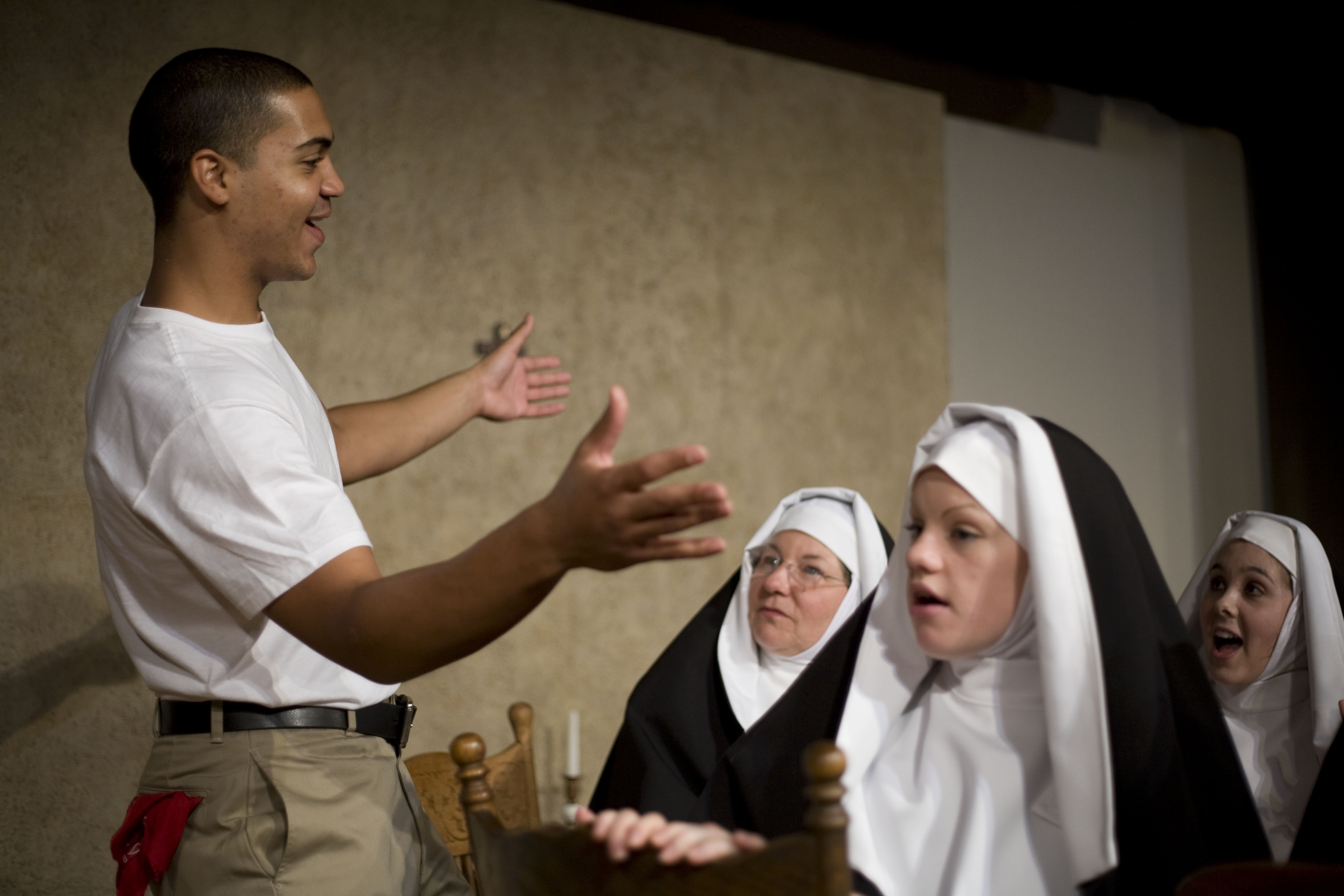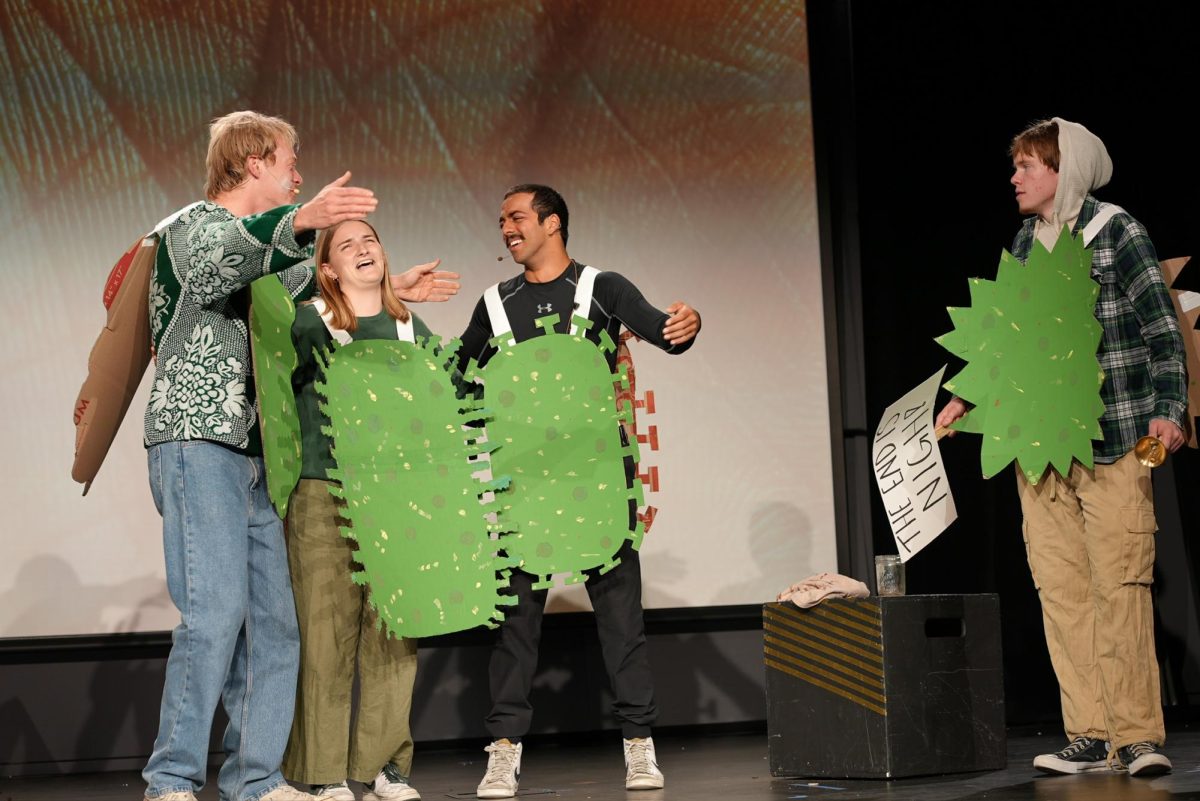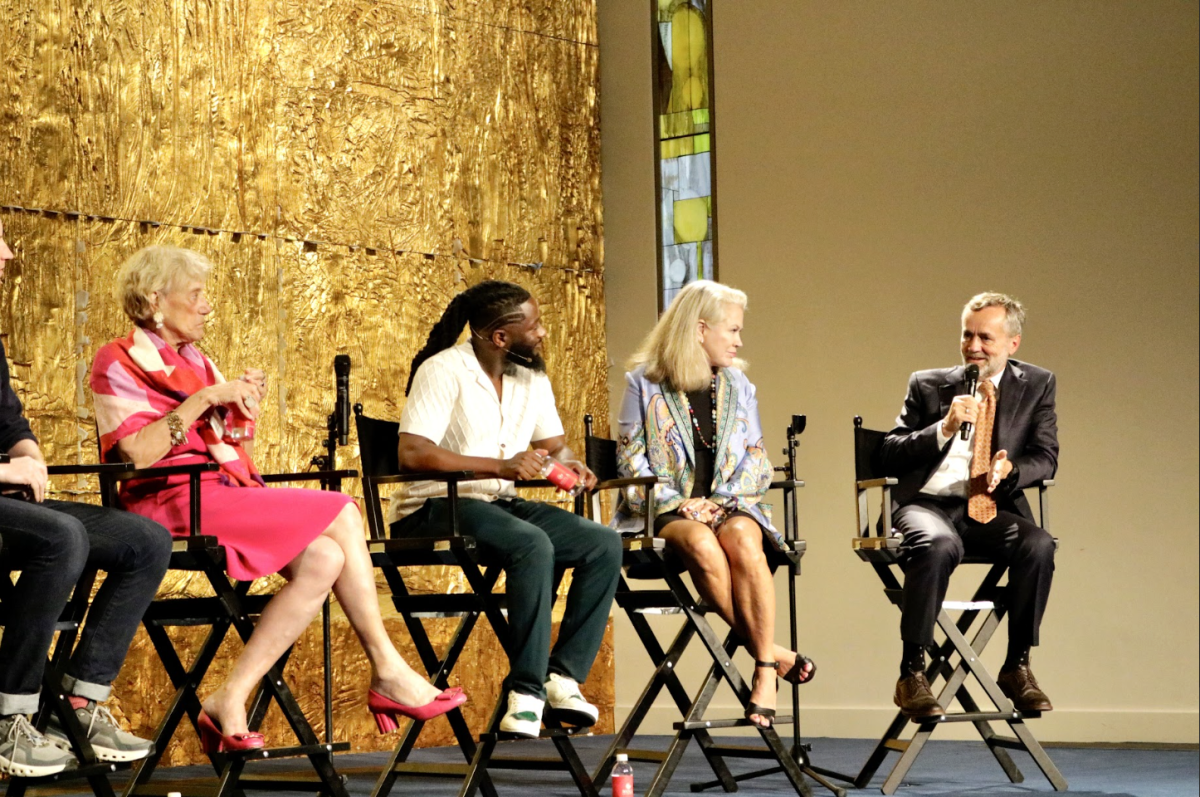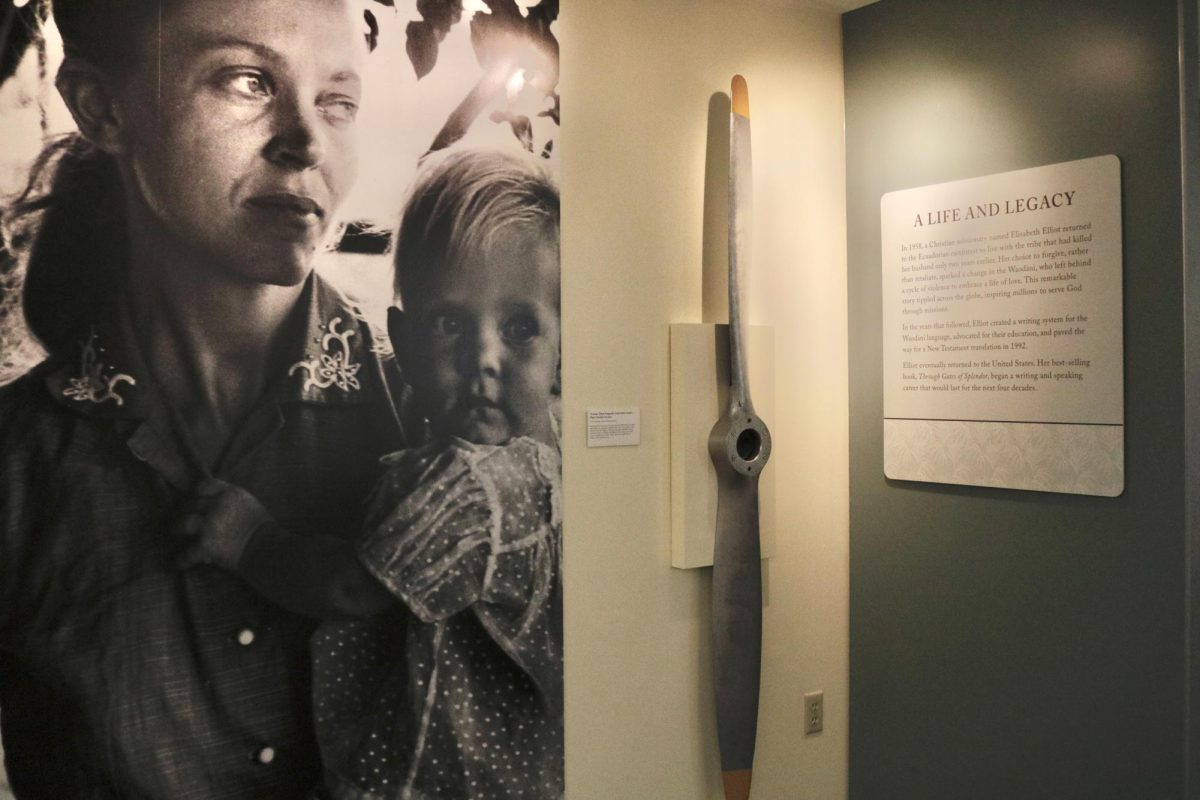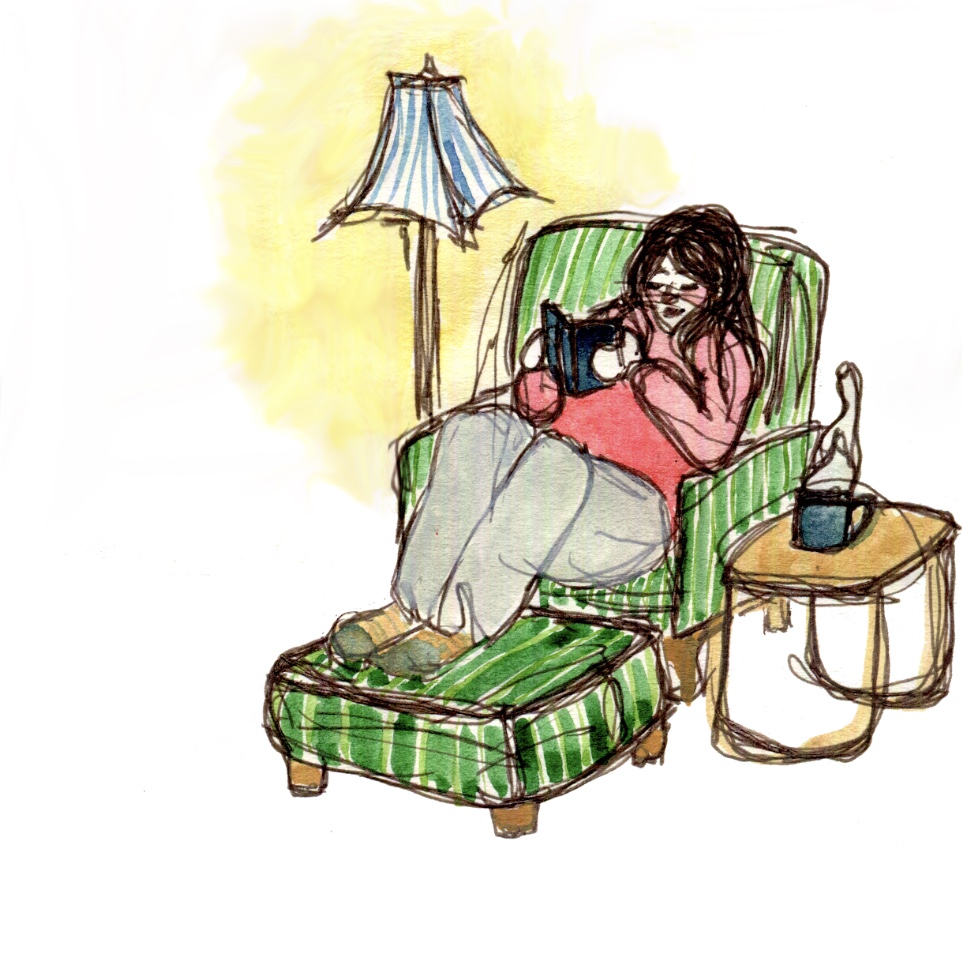“And why do you worry about what you will wear? Consider the lilies of the field and how they grow,” reads Matthew 6:28.
On Thursday, Biola’s speech and drama team opened their production of “The Lilies of the Field.” Based on the 1962 novel by William E. Barrett, the story was converted to screenplay format for the 1963 movie of the same name, adapted for the stage in 1967.
In an interview just before the show’s Halloween night performance, director Forrest Robinson explained that the play employs a different method of storytelling than many other dramatic performances, stressing that the emphasis is on “exposition” rather than continuous action. The typical visual performance mantra of “show, don’t tell” is discarded in favor of an interactive cast — one that speaks directly to the audience and relates the story in a thoughtful, biographical style.
The story begins with Homer Smith, an unemployed, free-spirited handyman whose station wagon overheats in the middle of a trip through New Mexico. For this show, the talented Sean Rowry takes the reins as Smith, assuming the role that won Sidney Poitier an Academy Award.
In search of water, Smith stumbles upon the abode of a group of Catholic nuns who have recently escaped from communist-occupied Berlin. The nuns have attempted to establish a home for themselves in their new country, although their property is almost as sparse as their English. Their plan to fix up their little section of the Midwest includes the construction of a chapel, or as the German sisters would phrase it, a “schapel.”
When Smith realizes that the nuns are in the middle of these home-improvement projects, he offers them work in exchange for pay — however, he does not realize that the mother superior, Maria Marthe, played by Susan Gaines, believes that he is an answer to prayer. She declares to Smith in her heavy accent that God has sent him to build the chapel for them.
Smith begs to disagree, claiming, “[God] didn’t send a black Baptist to a Catholic nun.” As the Beatles might say, he believes that “mother superior jumped the gun.” Still, he remains with the women for a while, doing repair work on the property — and slowly begins to warm to the idea of their little project.
Honestly, I didn’t think I would enjoy the show; the concept seemed uninteresting and I mostly went because the movie version had earned an Oscar. However, I was pleasantly surprised both by Robinson’s choice of casting and the balance of drama and comedy throughout the piece.
Rowry works well as the independent Smith and spiritedly butts heads with the no-nonsense mother superior. The nuns, played by senior Carrie Haendle, freshman Thea Lammers, junior Missy Walker, and freshman Kerri Klingsmith, add comic relief with their flurrying about and quirky attempts at English. An extra bonus is the presence of senior Jono Lippman as the minstrel, appearing during scene changes to serenade the audience with an acoustic guitar.
All in all, this is an entertaining piece of work. Still, as Robinson thoughtfully adds, “it’s about faith.” And how maybe, just maybe, God can use both Baptists and Catholics.
This month, take time to stop and smell the lilies. The show runs from Oct. 30 through Nov. 15, with show times at 8 p.m. Thursday through Saturday nights, and 4 p.m. Sunday matinees on Nov. 2 and 9. Tickets are $8 for students, staff, faculty and alumni, and $10 for others.



